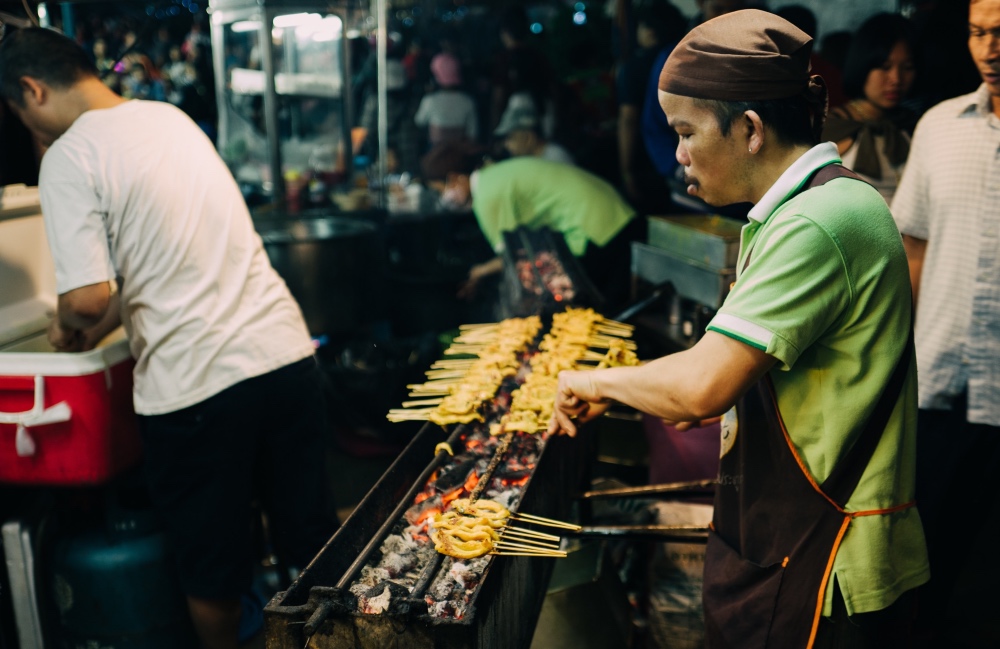London, UK
Thomson Reuters Foundation
Efforts to reduce reliance on wood and dung fires for cooking and get cleaner, climate-friendly alternatives into use are likely to face serious disruption as a result of economic woes related to the coronavirus pandemic, researchers said last week.
An April global survey of more than 100 clean cookstove manufacturers, distributors and associated firms found that a third had temporarily ceased operations, and most of the rest said they faced “moderate to severe” threats to their business.
“Industries around the world…are experiencing unprecedented disruptions,” Dymphna van der Lans, CEO of the Clean Cooking Alliance, a Washington-based non-profit, said in a statement.

A food vendor cooking in Bangkok, Thailand. PICTURE: Bundo Kim/Unsplash
Economic shutdowns to limit the spread of COVID-19 also are hitting investment in efforts to get cleaner cooking methods into the hands of the world’s poorest, suggesting the impact could be long-lasting, the alliance noted.
The disruption in supply chains of cleaner fuels – from ethanol to biogas – also could mean “people may be forced to return to firewood, charcoal and other unhealthy and polluting cooking methods”, van der Lans warned.
A global push to ensure universal access to clean, modern cooking fuel by 2030 has already been hampered by meagre investment in recent years.
Total financing for clean cooking businesses was $US40 million in 2017 – but the alliance estimates $US4 billion is required annually to meet the 2030 goal.
Cooking with dirty fuels causes several million deaths each year from carbon monoxide and other pollutants, according to the World Health Organization.
That is a particular concern this year as health experts suggest respiratory stresses – from air pollution in cities to smoke inhalation from cooking fires – could aggravate vulnerability to COVID-19.
When it comes to the virus in Africa, “the people who are most vulnerable are the women who are often using biomass as a fuel in poorly ventilated conditions”, Chris Gordon, an environmental scientist at the University of Ghana, told an online event this week on the virus and climate risks.
The use of dirty fuels for cooking also contributes to deforestation and climate change – accounting for about two per cent of global carbon emissions, equivalent to annual emissions from air travel, according to the World Bank.






